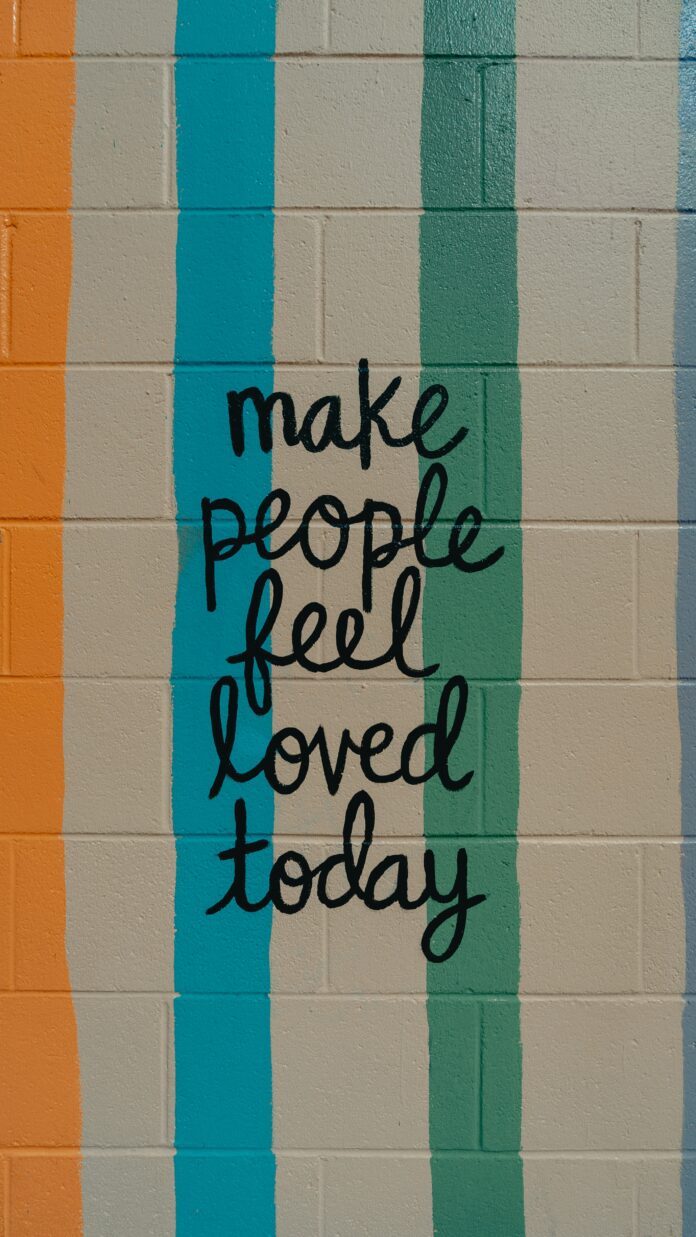
Life is stressful and full of unexpected challenges. There’s no surprise that so many people are constantly stressed out: social media and television never fail to provide us with a fresh portion of bad news, while social tension and the consequences of the pandemic can turn casual conversations with a neighbor into a heated debate.
People are divided, and it can be easy to forget about simple kindness. Kindness can work wonders not only for your relationships with others but also for your mental and physical well-being. Not only can your acts of kindness help others and add some positivity to their everyday lives, but they can also make you feel better.
When we perform random acts of kindness, we can feel connected to another person and see more value in our own lives. Kindness increases a sense of gratitude and makes us feel happy. If you struggle with mental health issues, acts of kindness can be a great addition to online talk therapy.
Many of us carefully choose activities and foods that can reduce anxiety, lower blood pressure, help us deal with stress, and increase our lifespan. If you are one of those people who are always looking for effective ways to make their lives more enjoyable, here’s the good news for you: kindness has proven to deliver all the benefits listed above.
The Impact of Kindness on Mental Health

The positive impact of being kind on mental health has been proven by lots of research data. A study published in The Journal of Social Psychology demonstrated that people who performed random acts of kindness for a week felt much happier. Moreover, the more acts of kindness they performed, the happier they felt afterward.
While being kind may seem like a purely altruistic attitude, the truth is that it’s beneficial for both parties because people feel better when helping others. There are many benefits of kindness for mental health, and when you perform acts of kindness, you can experience not only social but also psychological and even biological effects.
Acts of kindness are linked to an increase in the levels of dopamine and serotonin. These are two neurotransmitters that are often called hormones of happiness. Serotonin and dopamine play a very important role in our emotional well-being, and many mental health issues are associated with low levels of these neurotransmitters.
Besides, kindness toward others can boost oxytocin. This hormone is responsible for making us feel connected to others and building trust. By regulating the levels of serotonin, oxytocin, and dopamine, kindness can significantly improve one’s mood and make a person feel much happier.
Kindness can also help you fight stress. When we are stressed out, our bodies produce the stress hormone cortisol, and consistently high levels of cortisol can negatively affect not only mental but also physical health. According to research, people with a kindness-centered mindset have 23% lower levels of cortisol. As a result, they are less prone to stress and can cope with the effects of stress easier.
Obviously, acts of kindness can make you less selfish, but the most important thing is that they can make you less self-centered. Many people with depression, anxiety, and other mental health issues often feel isolated and therefore become too self-focused.
You may want to practice being kind to yourself, but it requires self-compassion, and practicing compassion with others can help you develop the same attitude toward yourself. When you treat people with kindness, you can feel helpful and improve your self-esteem. That’s why psychologists often recommend volunteering to people with depression.
Acts of Kindness and Physical Health

Along with the mental health benefits of being kind, you may also appreciate the physical health benefits. The reason is that kind people can avoid some of the negative consequences of stress. Besides, our emotions and processes that happen in the brain may also impact the body.
We’ve already mentioned that acts of kindness can help decrease the levels of cortisol, and this is the main reason why being kind can help you feel better not only emotionally but also physically, as well. High levels of cortisol are associated with heart diseases, an increased risk of weight gain, and inflammation.
Moreover, research data shows that kindness can also increase people’s lifespan. A study by the Association for Psychological Science demonstrated that older adults who supported their relatives, friends, spouses, and neighbors had a lower mortality rate.
Another study that involved an ethnically diverse group of older adults demonstrated that people who offered assistance to others had lower mortality rates compared to those who didn’t provide social support.
Benefits of Random Acts of Kindness
Kindness matters. People are a social species, and whenever we interact with others, these interactions impact our emotions and neural activity. Along with helping others, acts and words of kindness can also benefit those who offer support.
Improved mood and self-confidence
You may have noticed that, when you help someone else, you also feel good. When helping others, we feel useful, so our sense of self-worth improves. When you see how helpful you can be, you feel more self-confident, and self-confidence is very important for your mental health.
Anxiety and depression are often accompanied by a lack of self-confidence, so if you are depressed or anxious, acts of kindness can make you feel better.
Positive emotions

When we experience good emotions, we feel the effects of dopamine. This is a neurotransmitter that impacts reward centers in the brain. Dopamine is released whenever we accomplish something, and random acts of kindness allow you to add little accomplishments to your everyday life, therefore getting more dopamine and experiencing more positive emotions.
Improved self-care
Kindness increases your self-worth and therefore boosts your sense of purpose. As a result, you may feel more motivated to care about yourself. By showing compassion and helping others, you can also become more self-compassionate and treat yourself the way you treat others.
Better relationships
What is kindness? It’s more than just something that can make us feel better about ourselves — it’s also what brings people closer to each other. Our mental health largely depends on our relationships, and kindness can improve relationships, encouraging people to share their problems with each other and offer help. Good relationships create a supportive environment, and their impact on mental well-being is hard to overestimate.
Final Thoughts

When you treat people with kindness, you help not only them but also yourself. Kindness has proven to help people with various mental health problems, and this is a reason why words of kindness are an integral part of talk therapy. If you experience self-esteem issues, depression or anxiety, a combination of therapy and random acts of kindness can be a great solution.
When it comes to mental health, it’s important to not only help others but also accept help. If you have depression, anxiety, or other mental health problems, a licensed therapist can help you, so don’t hesitate to try therapy.
While traditional in-person therapy might be too time-consuming for people with busy schedules, online therapy platforms like Calmerry offer a more flexible solution, allowing you to get the necessary support with no need to commute to a therapist’s office.
Learn more about talk therapy to prepare for your first session.






